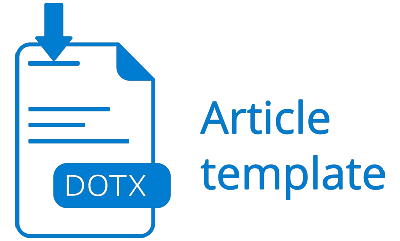Reducing Agency Problem Through Religious Values in Bhagavad Gita
Abstract
This conceptual paper aims to provide a solution in reducing the agency problem through the implementation of religious values in Bhagavad Gita. The solution offered in this paper is cultivating religious values in the Bhagavad Gita, which includes: carrying out obligations by eliminating lust for the reward obtained, facing sorrow and joy with unanimous determination and eliminating ego. Implementation of these values will minimize the agency costs that may arise. Applying the religious values of the Bhagavad Gita can be a powerful step in reducing the agency problem. Furthermore, when one organization is able to implement it properly, it will become a role model for other organizations especially non-profit organizations. As far as the authors are concerned, there has been no published papers discussing how to reduce agency problem through religious values in Bhagavad Gita.
References
Beaudoin, C. A., Agoglia, C. P., Tsakumis, G. T., & Guggenmos, R. D. (2015). Can Corporate Social Responsibility Counteract Personal Incentives to Manage Earnings? Examining Mechanisms That Influence Managers’ Discretionary Accrual Decisions. Working paper, University of Massachusetts Amherst.
Booth, P., & Schulz, A. K. D. (2004). The impact of an ethical environment on managers’ project evaluation judgments under agency problem conditions. Accounting, Organizations and Society, 29(5–6), 473–488. https://doi.org/10.1016/S0361-3682(03)00012-6
Chandra, R., & Ranjan, M. (2022). Artificial intelligence for topic modelling in Hindu philosophy: Mapping themes between the Upanishads and the Bhagavad Gita. PLoS ONE, 17(9 September). https://doi.org/10.1371/journal.pone.0273476
Davis, R. H. (2014). The Bhagavad Gita A Biography. Princeton University Press.
Guggenmos, R. D. & Agoglia, C. P. (2015). The Effect of Creative Culture on Aggressive Financial Reporting. Working paper, Cornell University.
Gilson, L. L., & Goldberg, C. B. (2015). Editors’ Comment: So, What Is a Conceptual Paper? In Group and Organization Management (Vol. 40, Issue 2, pp. 127–130). SAGE Publications Inc. https://doi.org/10.1177/1059601115576425
Gordon JN. (2002). What Enron Means for the Management and Control of the Modern Business Corporation Some Initial Reflections. Univ Chicago Law 69(3):1233–50.
Heathcote A, James D. (2002) The Failure of Accounting Practices to Reflect the True and Fair Value of Businesses is Becoming a Big Problem. Business Review Weekly, John Fairfax Publications Pty Ltd. p. 62.
Henderson S, Peirson G. (2001) Issues in financial accounting. Englewood Cliffs, NJ: Prentice-Hall.
Hope, O.-K., Langli, J. C., & Thomas, W. B. (2012). Agency Conflicts and Auditing in Private Firms Agency Conflicts and Auditing in Private Firms Agency Conflicts and Auditing in Private Firms. http://ssrn.com/abstract=1675934http://ssrn.com/abstract=1675934
Jensen, M. (1994). Self-interest, Altruism, Incentives, & Agency Theory. J Appl Corporate Finance, 7(2).
Jensen, M., and W. Meckling. 1976. Theory of The Firm: Managerial Behavior, Agency Costs and Ownership Structure. Journal of Financial Economics 3: 305-360.
Lamba, S. V., Jagadeesh, M., & Deshpande, A. (2022). Emotional Intelligence as the Core of Intelligence: A Perspective Based on the Bhagavad Gita. Pastoral Psychology. https://doi.org/10.1007/s11089-022-01032-0
Mallin, C. A. (2019). Corporate Governance. 6th Edition. Oxford University Press.
Mukherjee, M. S. (2017). Bhagavad Gita: The Key Source of Modern Management. Asian Journal Management, 8(1) https://ssrn.com/abstract=2900855
Pendit, N. S. (1976). Bhagavad Gita. Lembaga Penyelenggara Penterjemah dan Penerbit Kitab Suci Weda dan Dhammapada Departemen Agama Republik Indonesia.
Mukherjee, M. S. (2017). Bhagavad Gita: The Key Source of Modern Management. https://ssrn.com/abstract=2900855
White A. (2002). Axe swings on bosses’ options. The Australian.
Wolk, H. I., Dodd, J. L., & Rozycki, J. J. (2017). An Introduction to Accounting Theory. In Accounting Theory: Conceptual Issues in a Political and Economic Environment (pp. 1–25). SAGE Publications, Inc. https://doi.org/10.4135/9781506300108.n1
Copyright (c) 2023 Jurnal Ekonomi & Bisnis JAGADITHA

This work is licensed under a Creative Commons Attribution-NonCommercial-ShareAlike 4.0 International License.
 Abstract viewed = 215 times
Abstract viewed = 215 times
 PDF downloaded = 207 times
PDF downloaded = 207 times







